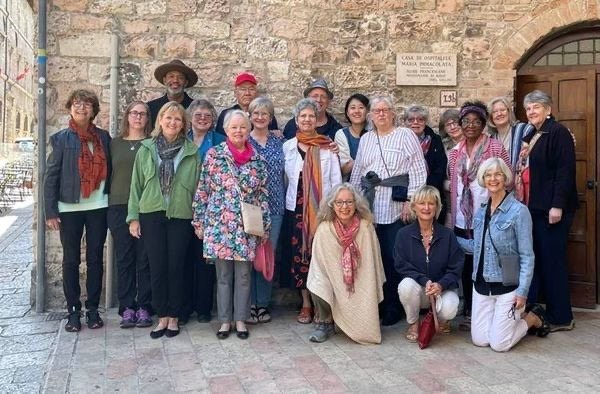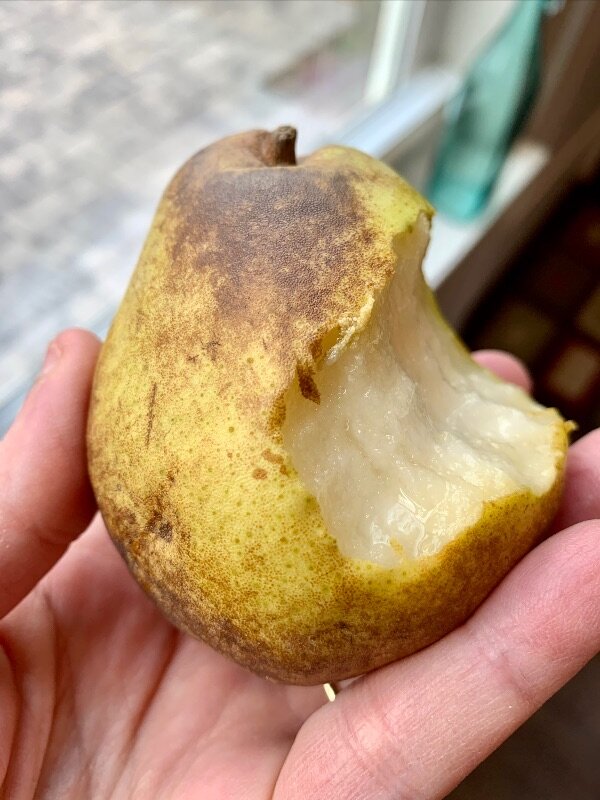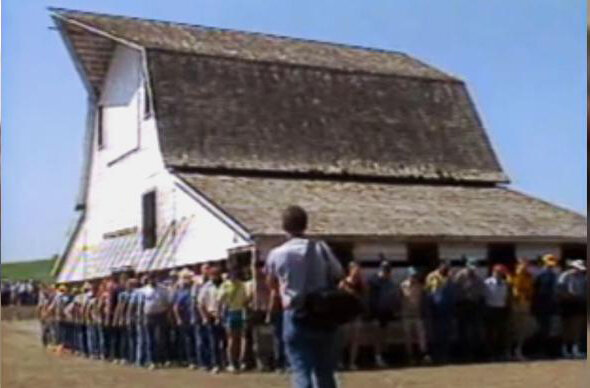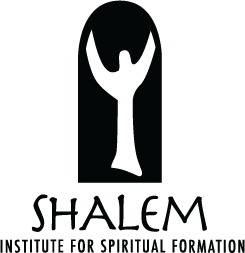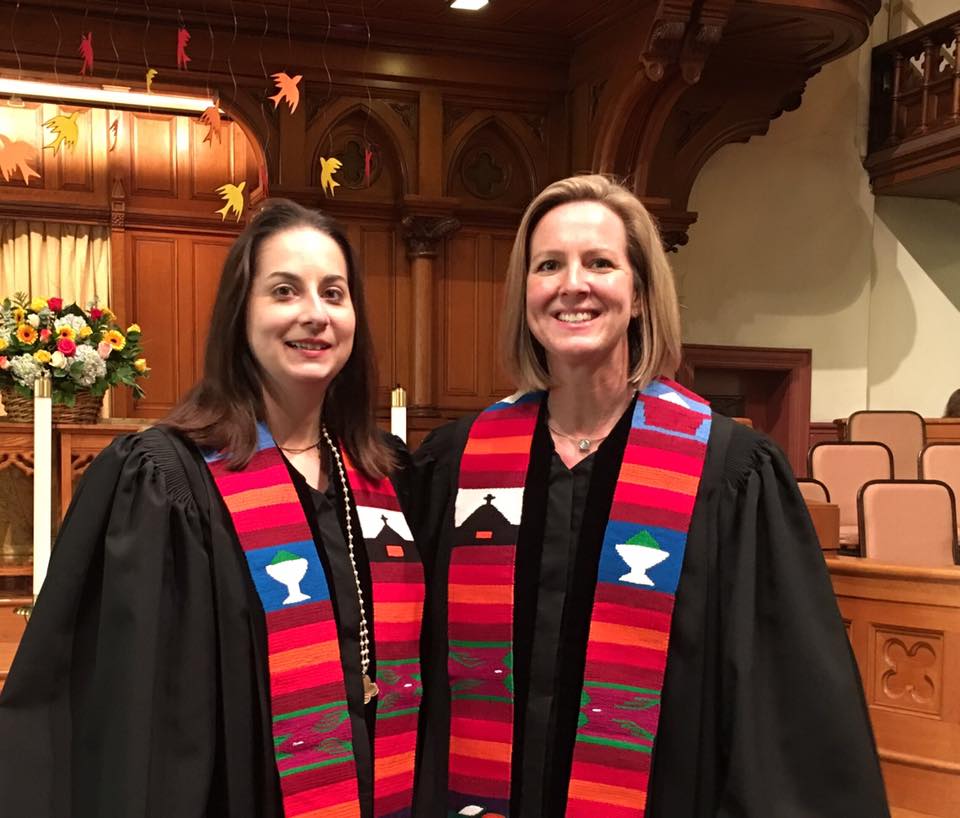Dear Ones:
Oh my, so much can happen when one is away on vacation. Last Friday, when Tim and I first learned of the Supreme Court's decision on Roe, we were in Massachusetts, having lunch in the coastal village of Padanaram with my friend, Emily Kellar, pastor of the Congregational Church of South Dartmouth, UCC. (Emily and I co-lead the Shalem Institute’s Clergy Spiritual Life and Leadership program.)
“God, where are you in this situation?
What is the most loving thing I can say or do next?
What does a Christ-shaped response look like?
What is the Spirit doing here?”
The three of us simply stared at each other.
I needed to sit with the news for several days before I could talk about it, even with Tim, not just because of what I see as the predetermined, politicized nature of the SCOTUS decision, but also because the essential questions I rely on for grounding and discernment—God, where are you in this situation? What is the most loving thing I can say or do next? What does a Christ-shaped response look like? What is the Spirit doing here?—were yielding no fruit that I could see or feel in the moment. Sometimes faith is like that.
So much has been said and screamed and cheered and chanted this past week. More words and actions will rise, and must rise, in response not only to Dobbs but also to Justice Clarence Thomas’ claim that the court’s reasoning also should be applied to earlier decisions about contraception, sexual relationships and marriage equality. Today I’m adding a few more teaspoons to this sea of words…
God is for life in all its fulness. Navigating divergent religious claims about when life begins and what “fulness” of life means for every person is typically the point at which the train goes off the rails. It’s important to note that there is no one “religious view” on abortion, or “ensoulment,” the moment during pregnancy when the soul is believed to enter the body—that is, when a fetus becomes human.
Catholic theologians, Evangelical Christians and others contend that ensoulment happens at the moment of conception.
The Talmud, the main source of Jewish law, refers to the fetus as part of the mother’s body. Jewish law protects a fetus as a “potential person,” but does not view it as holding the same full personhood as its mother. American Jews have generally supported legal abortion as a religious freedom issue and a question of life versus potential life.
Muslims have a range of positions on abortion. Some Muslim scholars and clerics believe abortion is never permitted, while many allow it until ensoulment, which is often placed at 120 days (just short of 18 weeks).
While Buddhists also have varied views on abortion, generally the Buddhist approach emphasizes that abortion is a complex moral decision that should be made with an eye toward compassion.
The pursuit of reproductive justice requires discernment at a deeper level than most Americans are equipped for. Our nation, especially in the halls of power and in many Christian pulpits and pews, seems incapable of dealing with ambiguity and complexity. People on both sides of the abortion argument protect and defend our dualistic, binary assessments: good/evil, saint/sinner, right/wrong, pro-life/pro-choice.
Liberal people are accused, not without cause, of exhibiting a cavalier appreciation for the mystery of life before birth. Conservative people are accused, not without cause, of exhibiting little to no acknowledgment that this life exists within the bodies of women who must be free to make medical choices for themselves.
Such dualism is a trap of our own making. I appreciate Richard Rohr’s invitation to a deeper way: “The broad rediscovery of nondual, contemplative consciousness gives me hope for the maturing of religion and is probably the only way we can move beyond partisan politics. Many are now realizing that we have been trying to solve so many of our religious, social, political, and relational issues inside of the very mind that falsely framed the problem in the first place.”
“Christians from all sides…should be able to come together to work on a common goal of reducing the need for abortion…[addressing] both the concern on the Right that fewer abortions occur and the concern on the Left that women are able to make medical choices for themselves.”
There are actual ways of honoring convictions from both sides of the conversation, as my friend Susan Shaw, professor of women, gender and sexuality studies at Oregon State University, pointed out in an op-ed piece for Baptist News Global: “Whether Christians support or oppose abortion access,” says Shaw, “Christians from all sides of the complicated debate should be able to come together to work on a common goal of reducing the need for abortion. That common goal could address both the concern on the Right that fewer abortions occur and the concern on the Left that women are able to make medical choices for themselves.”
No pregnancy story is the same. I gave birth twice and suffered a miscarriage between pregnancies. During all three experiences I benefitted from:
the privilege of being a white, cisgender woman
a stable, loving partnership with my husband
access to excellent healthcare
access to contraception until Tim and I were ready to begin having children
adequate financial resources to raise our children
the love and support of our extended families
and a spiritual community that pledged to love and nurture Taylor and Lucy and to walk with Tim and me in our experience of parenthood.
That’s my story. It’s not everyone’s story. Hundreds of millions of pregnancy stories exist, each one unique, transformative, and intensely personal. Some are joyful. Some are heartbreaking. Every story matters.
The decision overturning Roe cannot be separated from the rise of Christian Nationalism in the U.S. I cringed when I heard someone say this week: “Christians are ruining America.” The rise of Christian Nationalism has been well-documented, perhaps most thoroughly by the BJC and First Baptist DC’s own Amanda Tyler.
“Beware those who claim to know the mind of God and who are prepared to use force, if necessary, to make others conform. Beware those who cannot tell God’s will from their own.
”
During a recent interview with the Center for American Progress, Amanda named Christian nationalism as the single biggest threat to religious freedom in the United States and “a contributing ideology in the religious right’s misuse of religious liberty as a rationale for circumventing laws and regulations aimed at protecting a pluralistic democracy, such as nondiscrimination protections for LGBTQI+ people, women, and religious minorities.”
Christian nationalism is bad for the country (any country) and bad for the cause of Christ. As Barbara Brown Taylor reminds us, “Jesus was not killed by atheism and anarchy. He was brought down by law and order allied with religion, which is always a deadly mix. Beware those who claim to know the mind of God and who are prepared to use force, if necessary, to make others conform. Beware those who cannot tell God’s will from their own.”
RESPONDING TO THE TIME GIVEN US
The turbulence of this moment reminds me of an exchange between J.R.R Tolkien’s beloved characters, Frodo Baggins and Gandalf the Grey: “I wish it need not have happened in my time,” says Frodo. “So do I,” says Gandalf, “and so do all who live to see such times. But that is not for them to decide. All we have to decide is what to do with the time that is given us.”
As you ponder what is yours to do, I invite you to turn again to our unshakeable Source, joining the ancient ones who, amidst cataclysm and uncertainty, raised their voices to sing:
God is our refuge and strength...
And though the whole earth should change,
we will not fear.
Though the mountains themselves should tremble
and fall into the seas…
we will not be afraid.
For God, our God, is with us,
a refuge and strength.
~ Psalm 46
Friends, God is our refuge and strength.
Take heart.
Do not fear.
Do what is yours to do.
Follow Christ.
Lean into love.
Peace and every good…




